Media Mentions
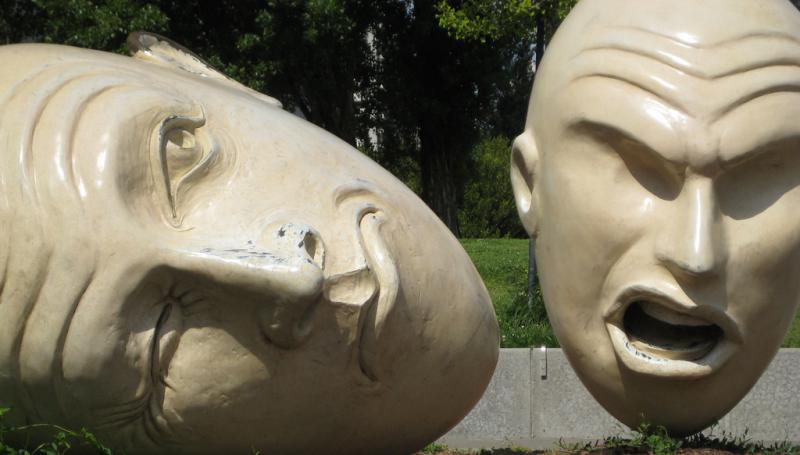
Live From Watkinson: Examining Our Furious Political Discourse
The Colin McEnroe Show
Live From Watkinson: Examining Our Furious Political Discourse
- Valeriano Ramos Jr. - Director of Strategic Alliances and Equity Officer at Everyday Democracy
- Wendy F. Habelow - Clinical psychologist and owner of Beacon Behavioral Services, LLC.
- Brendan Kane - Associate Professor of History at UConn and one of the leaders of the Humility and Conviction in Public Life Project
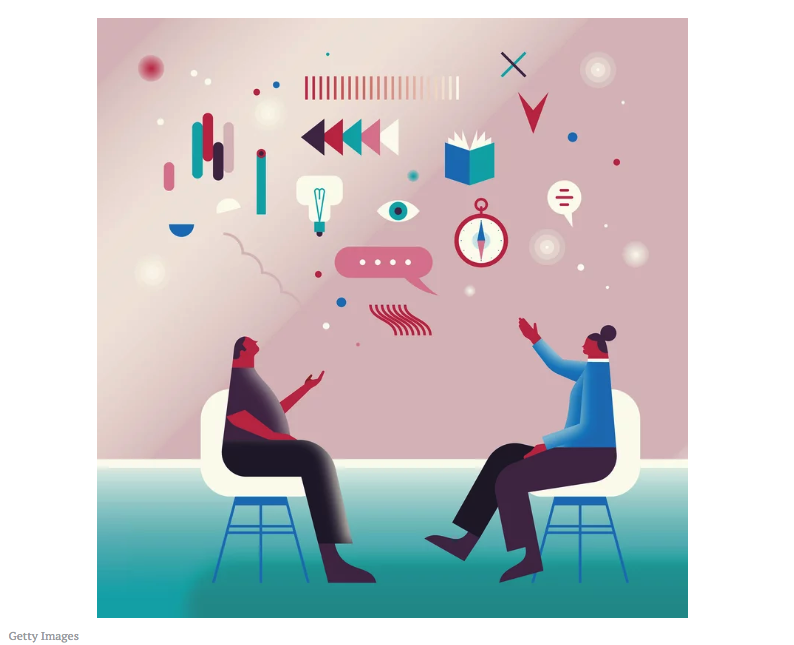
How to Win Every Argument
TIME - Ideas - Society
Read article on Time.com
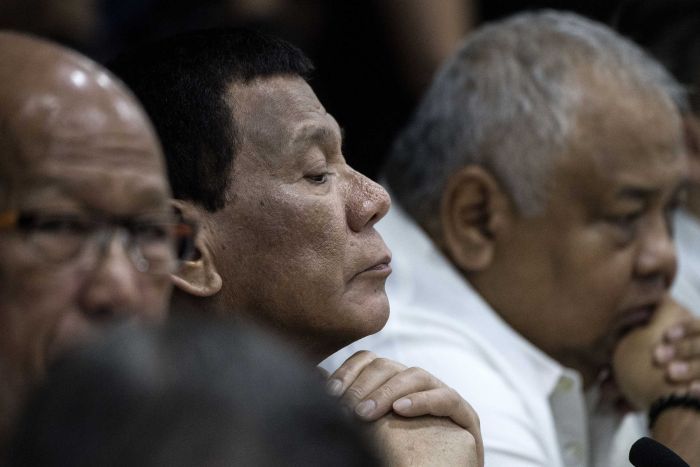
Devotion, democracy and Duterte
The Philosopher's Zone
Devotion, democracy and Duterte
featuring UConn philosophy professor Tracy Llanera
Listen at www.abc.net.au

Walls: Knocking Down The Barriers That Divide Us
Walls: Knocking Down The Barriers That Divide Us
"The most dangerous walls are in our heads, not on our borders."
Read article on www.forbes.com

Extreme opponents of genetically modified foods know the least but think they know the most
Article published in Nature Human Behaviour:
Extreme opponents of genetically modified foods know the least but think they know the most
by Philip M. Fernbach, Nicholas Light, Sydney E. Scott, Yoel Inbar, Paul Rozin
Read article here: https://rdcu.be/bgNOo
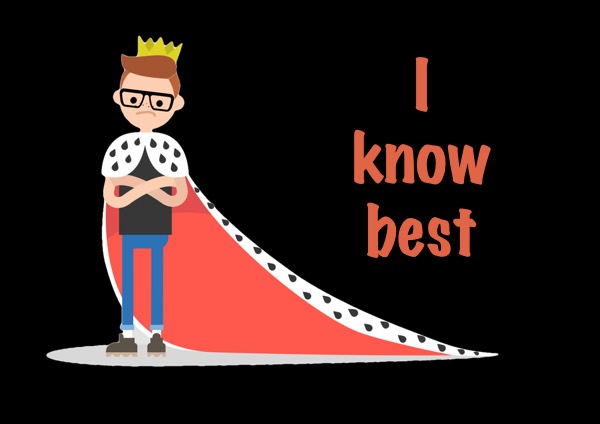
Intellectual Arrogance
Philosophy 24/7
A Podcast That Interviews Leading Philosophers About Pressing Moral and Political Issues.
Intellectual Arrogance with Michael Lynch
Listen to Podcast on philosophy247.org
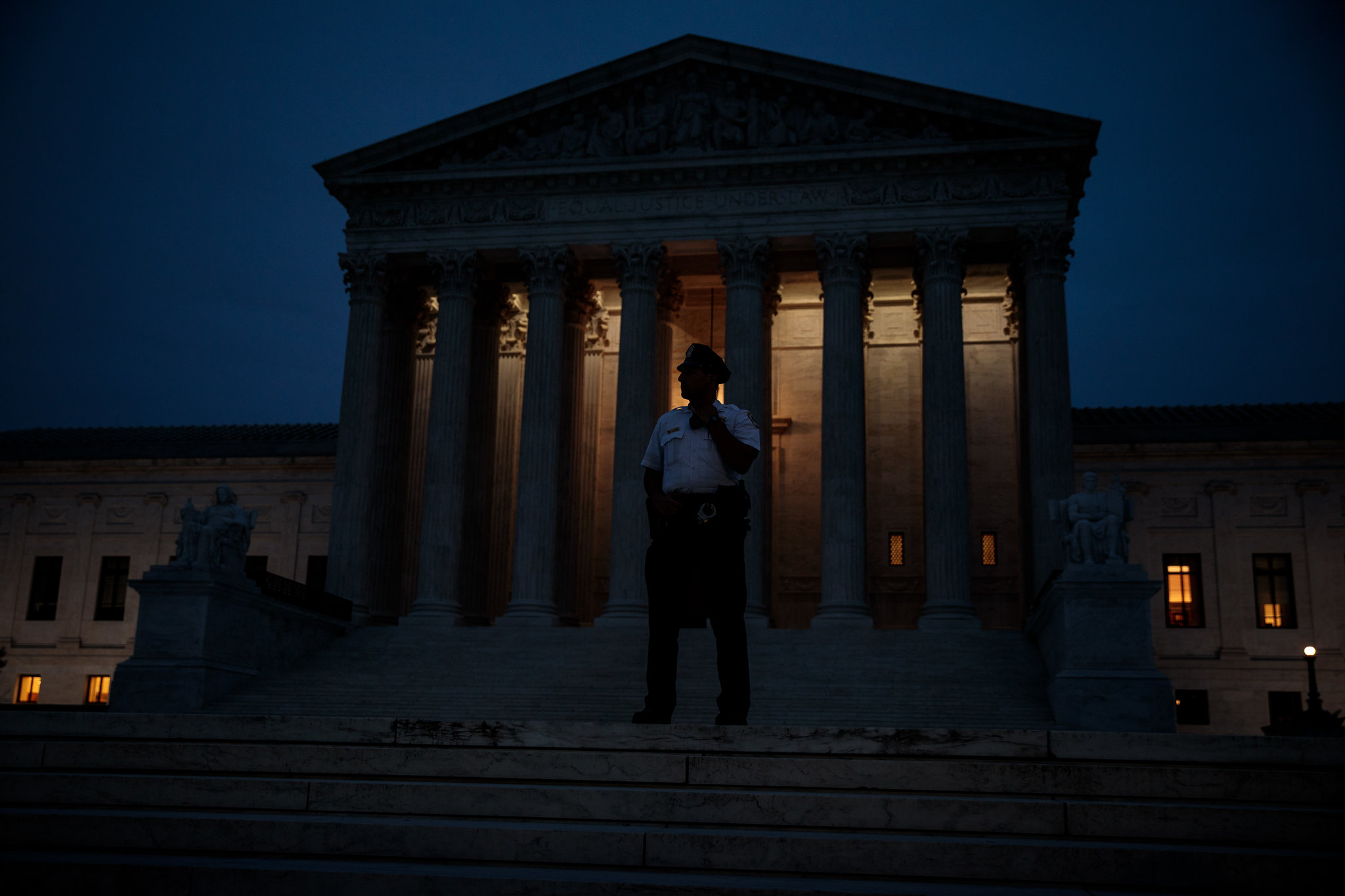
What ‘Justice’ Really Means
The word has taken a beating in the past few weeks. But what role does it truly play in our lives?
By Paul Bloomfield
Mr. Bloomfield is a professor of philosophy at the University of Connecticut.
Read article on www.nytimes.com
Running Class Discussions on Divisive Topics Is Tricky. Here’s One Promising Approach.

Genetically modified food opponents overestimate their knowledge, according to CU researchers
Genetically modified food opponents overestimate their knowledge, according to CU researchers
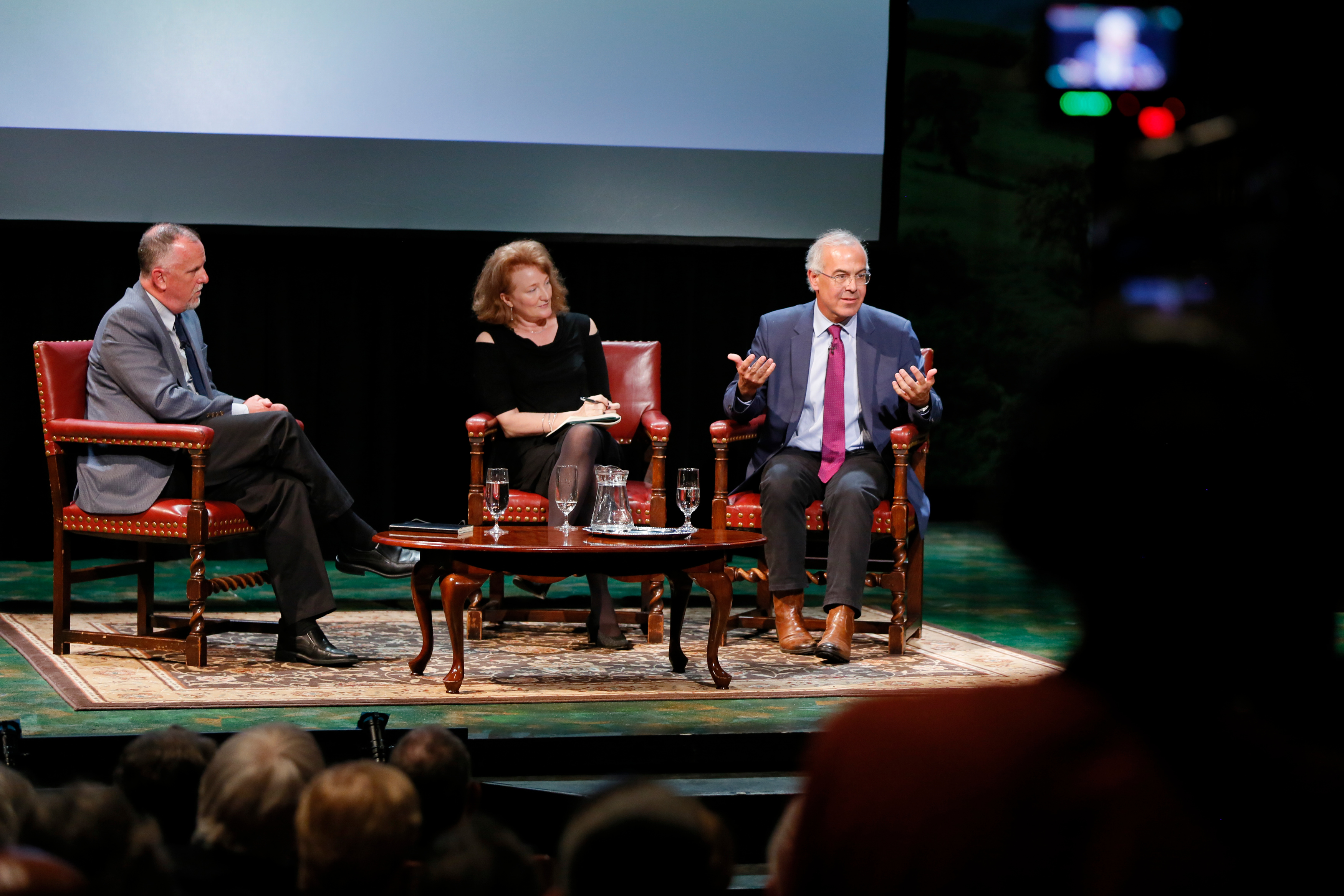
Humility in Politics the Focus of UConn Forum in D.C.
Humility in Politics the Focus of UConn Forum in D.C.
September 21, 2016 - Christine Buckley - College of Liberal Arts and Sciences
Read article on UConn Today
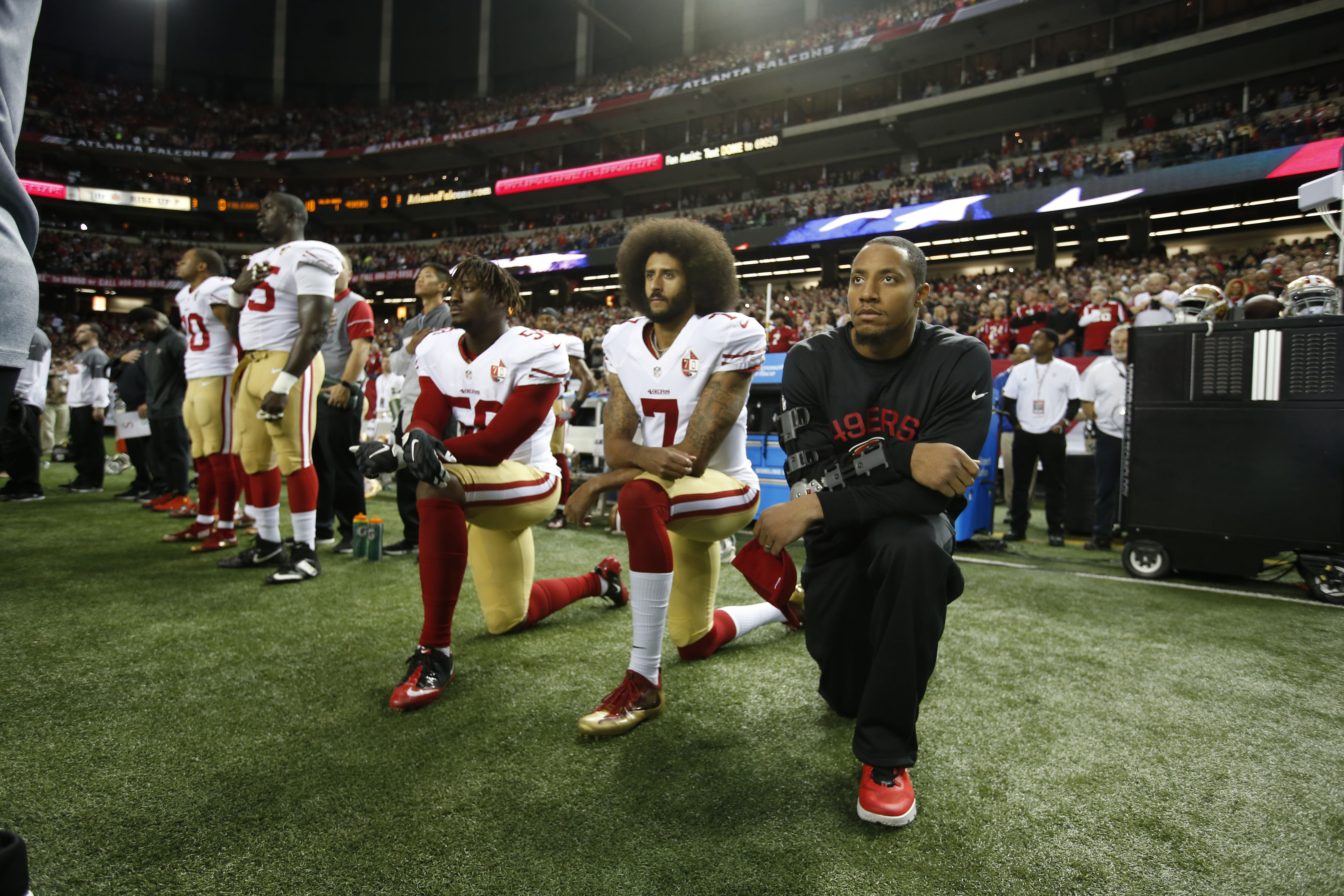
Civility and Social Protest
January 30, 2019-Kenneth Best- UConn Communications
Read more on UConn Today
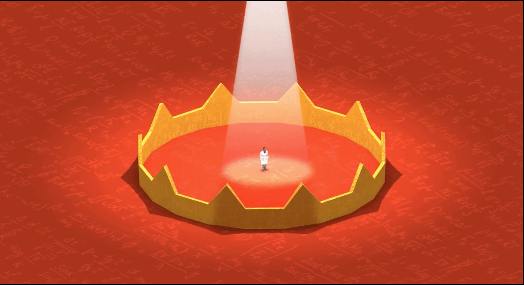
Intellectual humility: the importance of knowing you might be wrong
Intellectual humility: the importance of knowing you might be wrong
Why it’s so hard to see our own ignorance, and what to do about it.
Read article on Vox.com
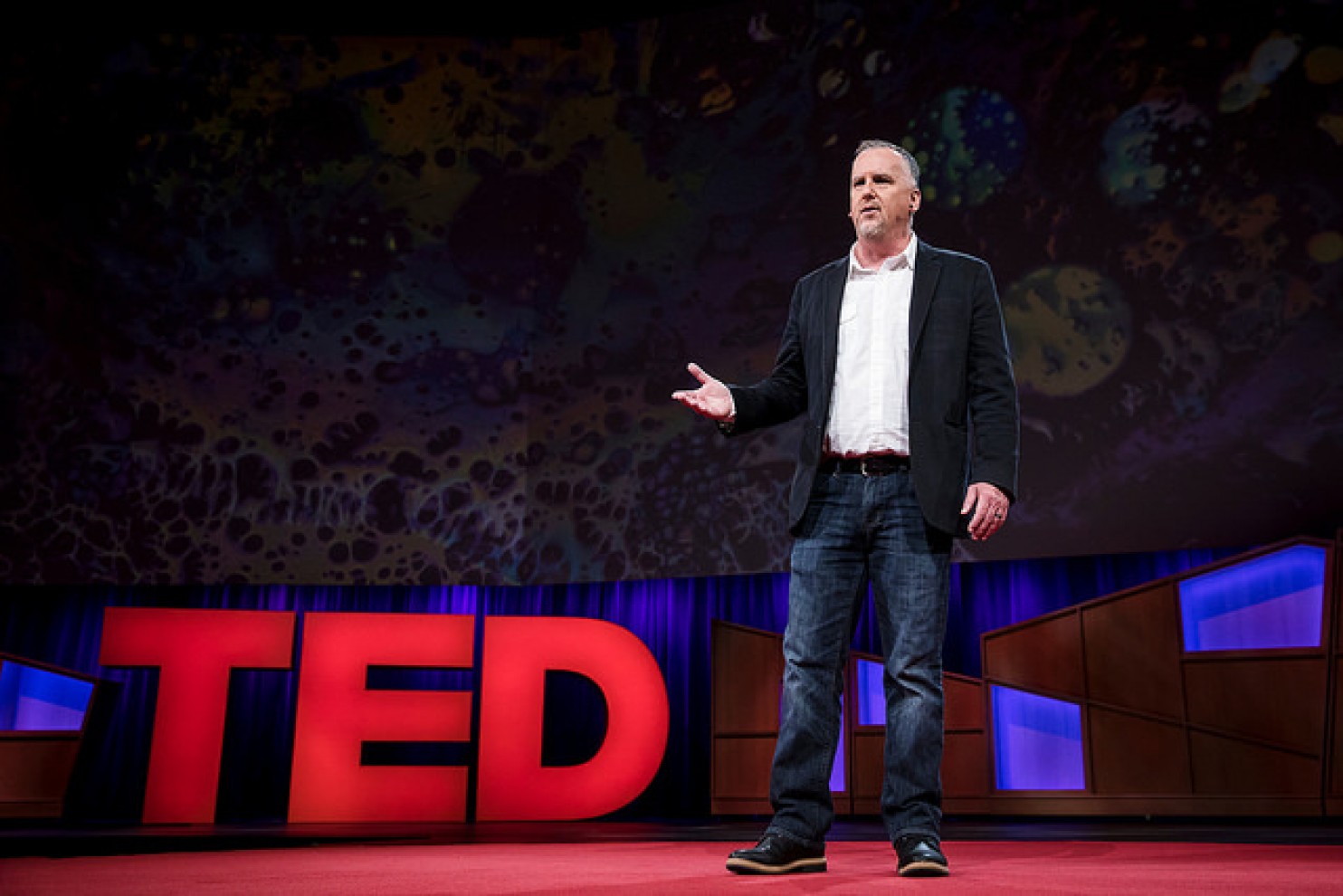
To solve our post-truth problem, these TED speakers say we have to admit we don’t know everything
If the 2016 presidential election showed anything, it’s that Americans no longer seem to be living in the same reality. Truth is subjective, based on perspective, not facts. And facts exist to be cherry-picked to support personal beliefs.Some will blame Facebook, saying it has emboldened people to live in self-affirming bubbles. Others might point to Donald Trump, who plays fast and loose with the truth and was elected president anyway. Then there’s our easy access to information that makes people feel all-knowing. The answers to life’s questions are literally at our fingertips, so why bother to ask one another?
Read more at the Washington Post.
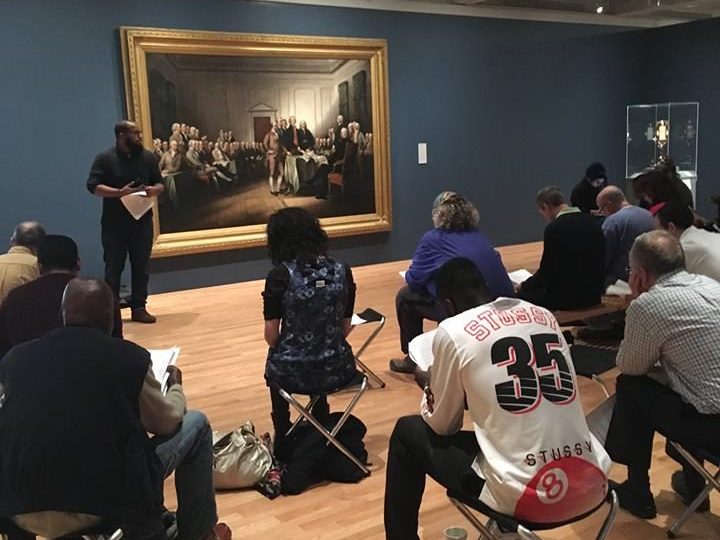
Hartford Public Library, UConn and Atheneum Launch Encounters, A New Discussion Series
What's in a name? The creation of the United States of America made us a democracy and a republic. That creation story and the players in it are very much with us. "Hamilton," is one of the biggest Broadway hits and presents founders Alexander Hamilton, George Washington, Thomas Jefferson and Aaron Burr as flesh and blood men. With their flashes of brilliance and crippling personal deficits they invent a new government.
Politics has occupied public attention for the past year as we elected a new U.S. president. So a deeper dive into documents created by our founders is especially timely.
Read more at the Hartford Courant.
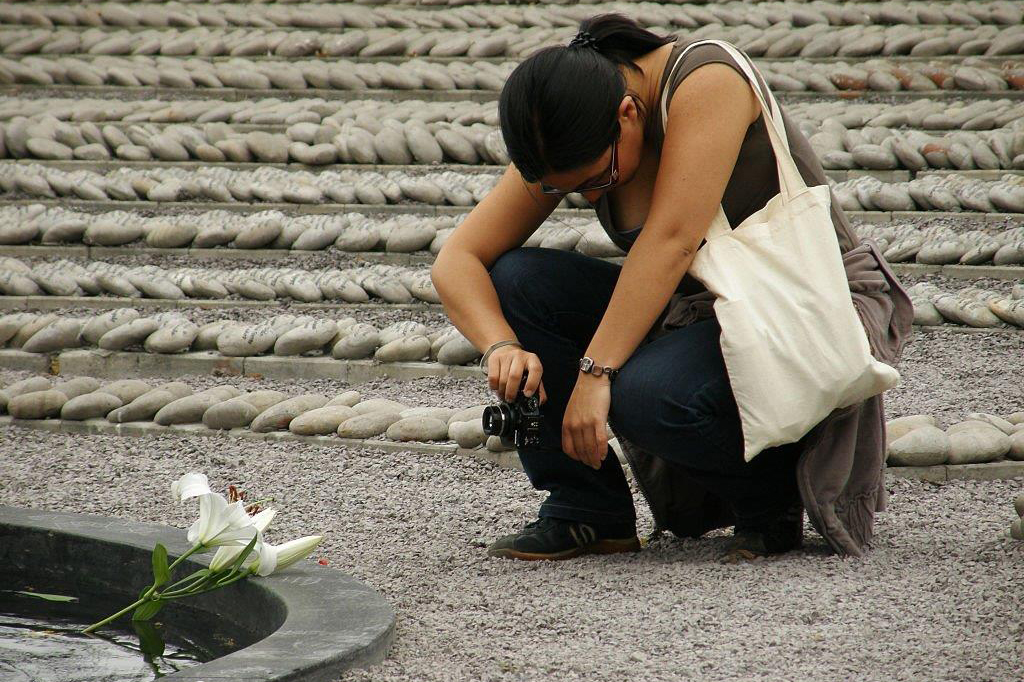
From Conflict to Peace: The Role of Art | Kenneth Best | UConn Today
"Memorials commemorating a nation’s past conflicts can help to build a more peaceful future when created to serve as symbolic reparations for victims of human rights violations, according to two UConn professors working to improve how such memorials can serve as a central framework in the transition from conflict to peace.
Robin Greeley and Michael Orwicz, art history professors in the School of Fine Arts, say that without great care in developing them, memorials to human rights violations can be ineffective in strengthening civil society and moving people toward a more peaceful and inclusive future."
Read the full article here at UConn Today.
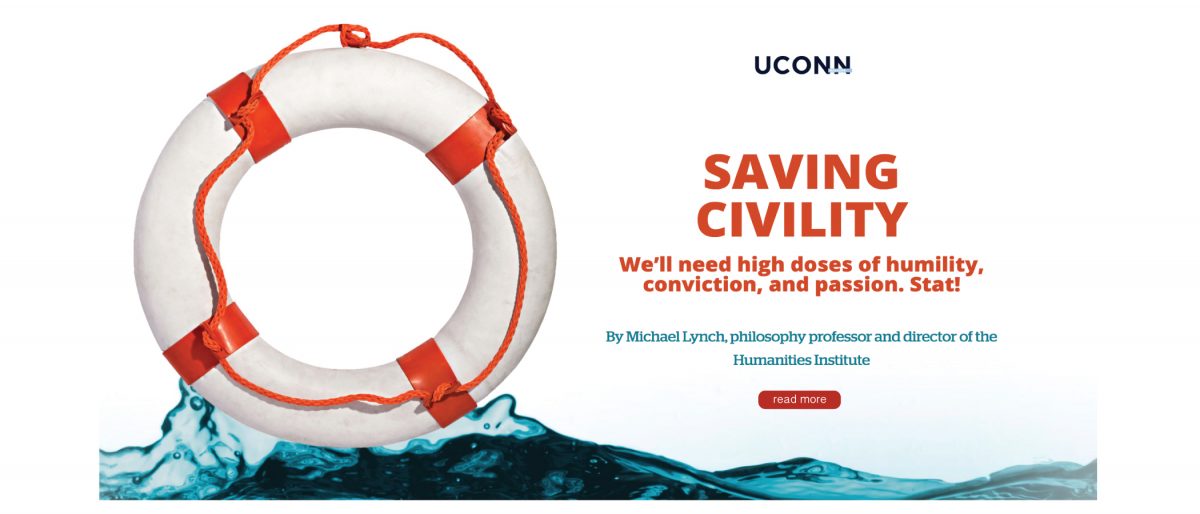
Saving Civility We’ll need high doses of humility, conviction, and passion. Stat! By Michael Lynch, philosophy professor and director of the Humanities Institute
“The best lack all conviction,” William Butler Yeats noted, “while the worst are full of passionate intensity.” Rarely has the Irish poet’s famous warning against the perils of dogmatism seemed more apt. We are so deeply divided in this country that our disagreements extend past values, past even the facts, to the very meaning of what a fact is. As a result, many in the United States believe there is no point in talking to the other side. Why bother, when you already know you are right and they are wrong?
Read the full story at UConn Magazine
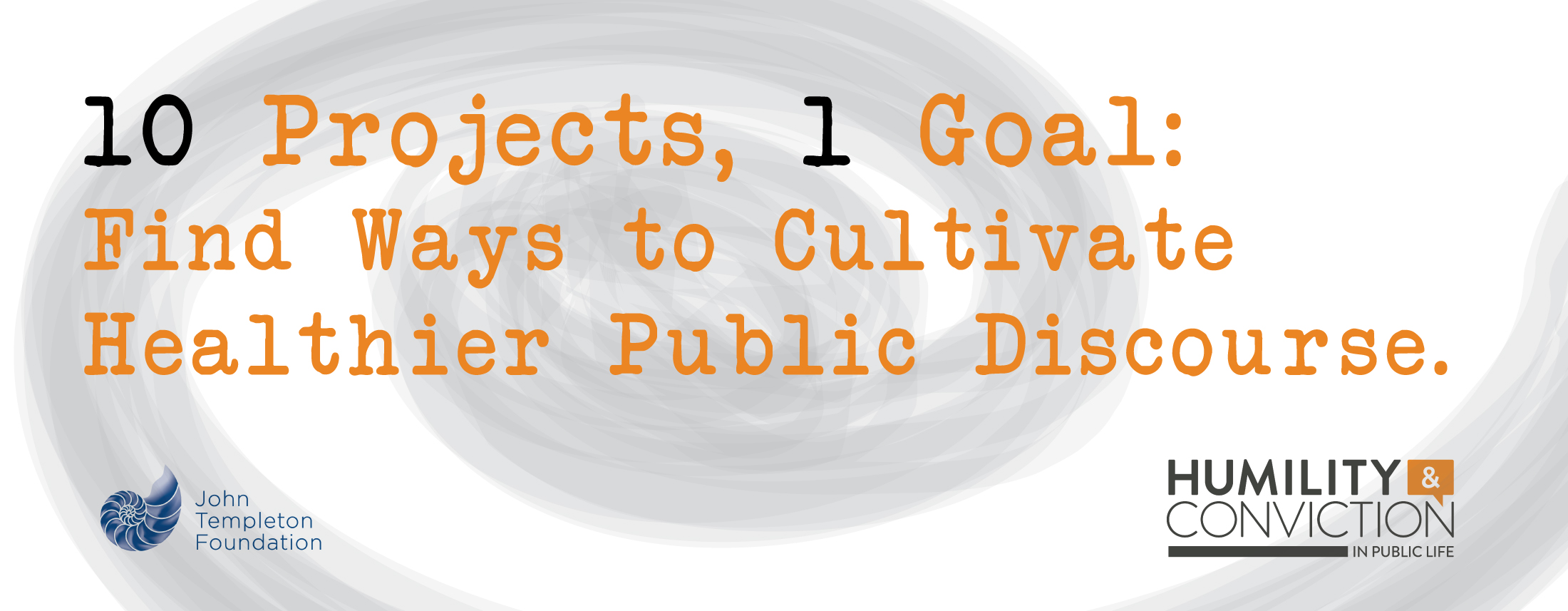
Grants Target Broken Landscape of American Discourse
A new $2 million fellowship grant program sponsored by the University of Connecticut’s Humanities Institute and funded by the John Templeton Foundation will support 10 innovative projects that explore the broken landscape of American discourse and create enduring strategies to spur and sustain open-minded, reasonable, and well-informed debate and dialogue.
Read the full story at UConn Today.
“Humility In Politics” Event Kicks Off UConn’s Public Discourse Research Project
Humility and vulnerability are no longer values that are rewarded in the political arena, and it’s up to individuals, and their relationships, to begin a sea change that could “trickle up” into political leadership.
Read the full story here.
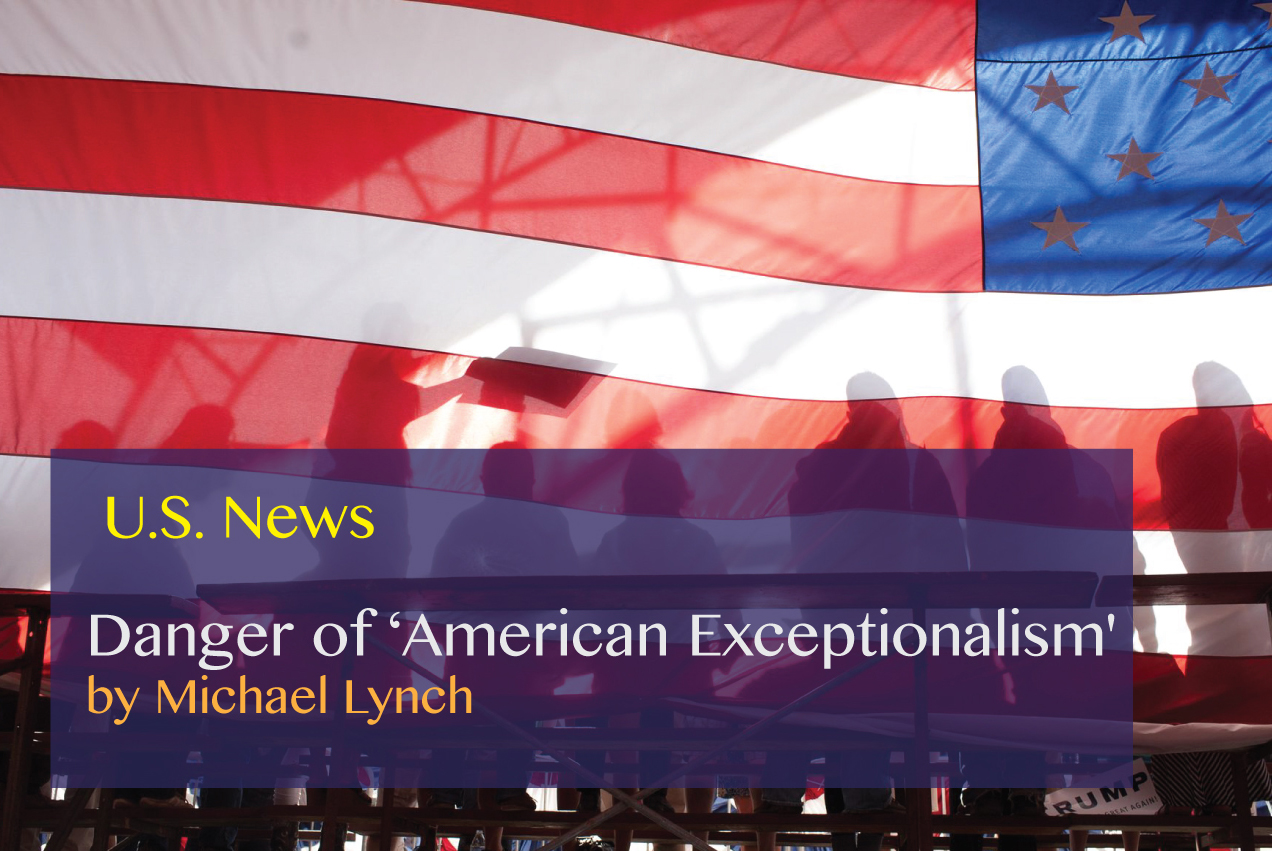
The Danger of ‘American Exceptionalism’
"Over the last month, there has been a steady drumbeat of talk about America's "greatness" – whether it was making it great again (Donald Trump) or already being the greatest country on Earth (the Obamas and Hillary Clinton). Yet what does it really mean to say America is "great" – now or in the future? Not surprisingly, it depends whom you ask: their politics, their views on the health of the economy and so on. But differences on the meaning of "greatness" go deeper as well and often concern a single idea that is of increasing national importance: American Exceptionalism." - Michael Lynch at USNews.
Read the full story at USNews.
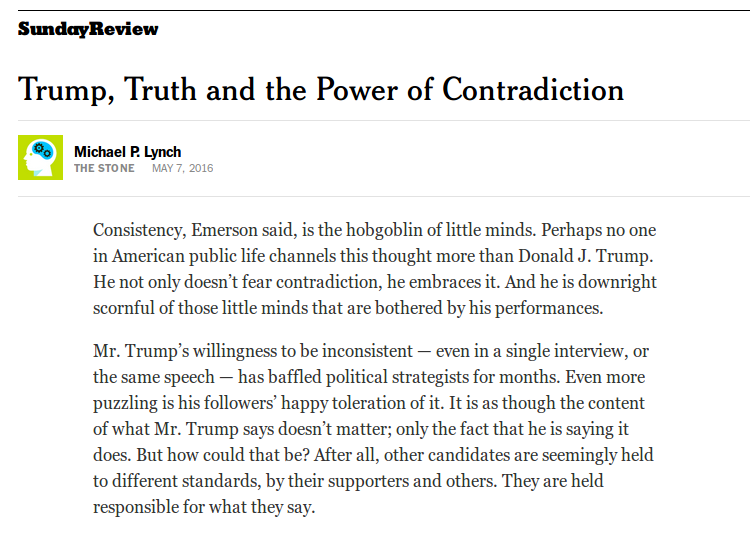
Trump, Truth and the Power of Contradiction
"Consistency, Emerson said, is the hobgoblin of little minds. Perhaps no one in American public life channels this thought more than Donald J. Trump. He not only doesn’t fear contradiction, he embraces it. And he is downright scornful of those little minds that are bothered by his performances." - Michael Lynch on Donald Trump, truth, and contradiction at The Stone.
Read the full article at the NYTimes.
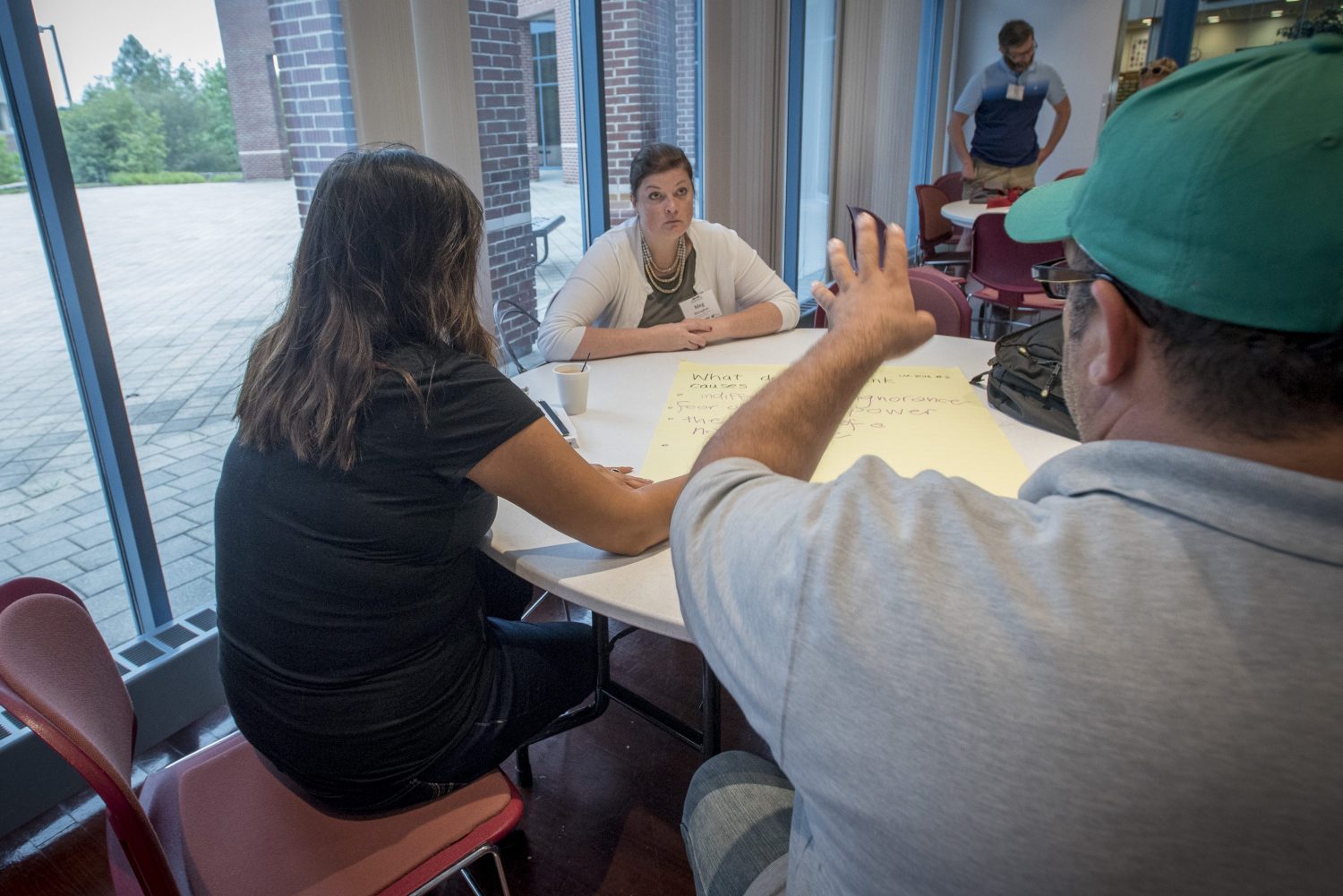
Moving the Conversation Forward
Middle and high school teachers participating in the Upstander Academy are learning how to use human rights education to discuss complex historical and current issues in productive ways.
Read more at UConn Today.
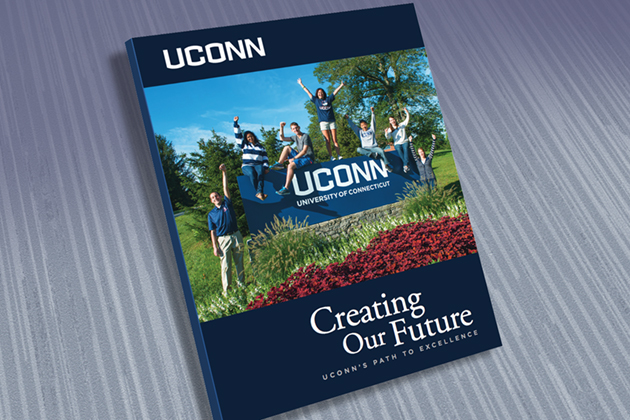
UConn Invests $10 Million in Support of Academic Vision
The University is investing in a slate of new initiatives to enhance research and education, consistent with its Academic Vision.
Read more at UConn Today.
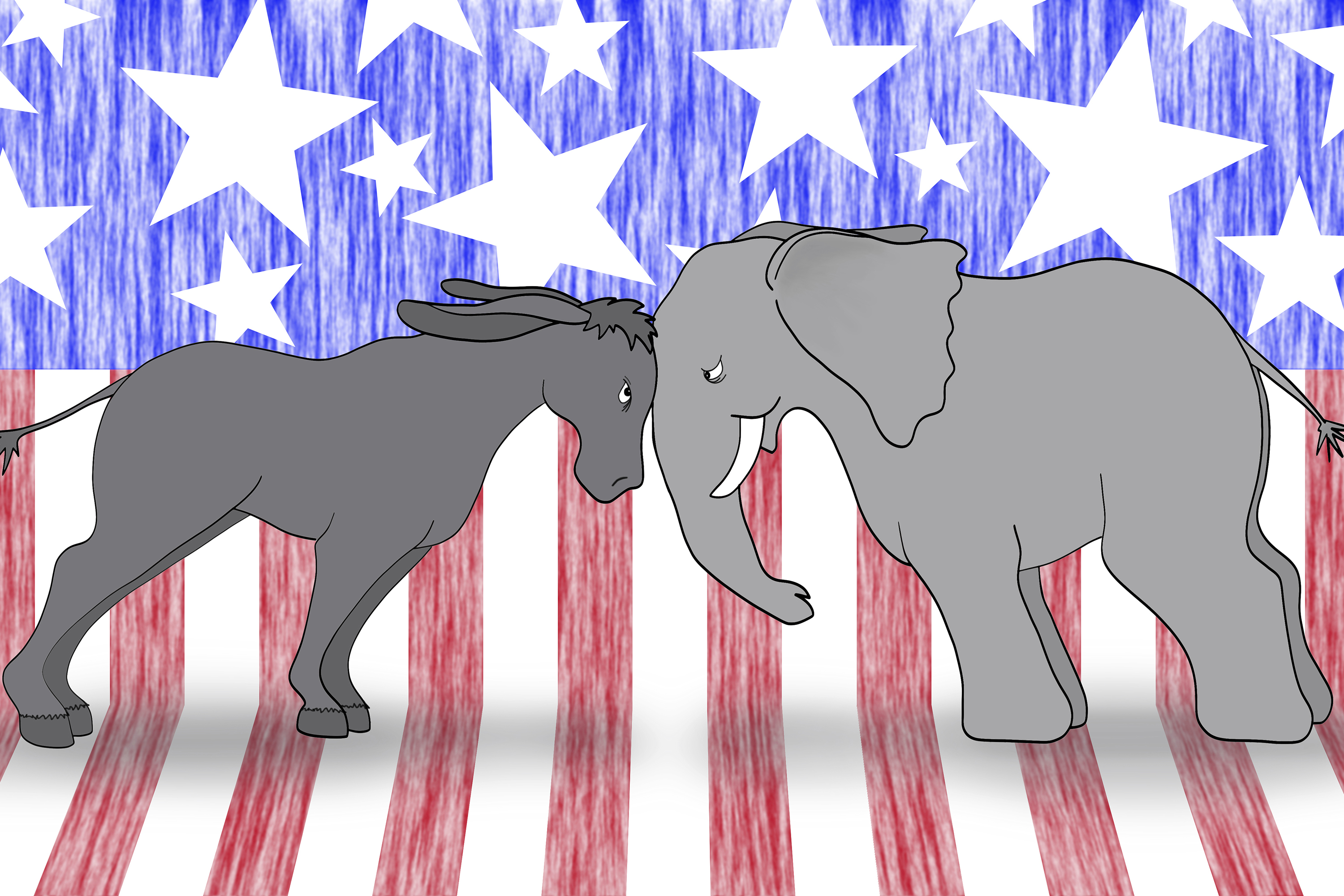
$5.75 Million Grant to Focus on Improving Public Discourse
The UConn Humanities Institute has received a $5.75 million grant from the Templeton Foundation for its project on public discourse. The project will examine the role that traits such as humility and open-mindedness can play in meaningful public discourse, with the hope of promoting healthier and more constructive discussion about divisive issues in religion, science, and politics.
Read more at UConn Today.